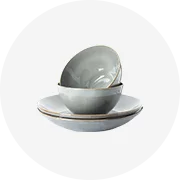Cheese Mold: An Essential Tool for Cheese Crafting
Cheese mold is a pivotal tool in the cheese-making process, allowing for the shaping and maturation of various cheese types. From blue cheese is mold to the distinctive rinds of brie cheese mold, these molds are not just containers but contribute to the development of flavor and texture in cheese. Understanding the role of cheese mold types is crucial for both commercial producers and artisanal crafters.
Understanding the Functionality of Cheese Molds
The primary function of a cheese mold is to shape the curd and facilitate the removal of whey. However, its use extends beyond mere shaping. For instance, moulding cheese with specific molds can influence the character of a cheese, such as the development of cheese white mold on a Camembert. Molds like penicillium candidum are introduced to create bloomy rinds, while others are responsible for the distinctive veins in moldy blue cheese.
Varieties and Applications of Cheese Molds
Cheese molds come in various shapes and sizes, each suited to different cheese styles. The cheddar cheese mold is typically cylindrical, allowing for the production of uniform wheels that can be aged to develop flavor. On the other hand, cream cheese mold and brie cheese mould are shallower, aiding in the gentle pressing and aging process required for these softer cheeses. For hard cheeses like parmesan cheese mould, sturdier molds are used to withstand the pressure of pressing.
Materials and Advantages of Cheese Molds
Cheese molds are made from various materials, each offering different advantages. Plastic molds are durable and easy to clean, making them suitable for repeated use in commercial settings. Silicone molds, while flexible and non-stick, are perfect for delicate cheeses such as mold on mozzarella cheese. The choice of material can affect the cheese's rind development and ease of demolding, which is critical for maintaining the integrity of soft cheeses like moldy mozzarella cheese.
Selection and Care of Cheese Molds
Selecting the right cheese mold is essential for achieving the desired outcome in cheese production. Factors to consider include the type of cheese being made, the size of the batch, and the specific characteristics desired in the final product. Proper care and maintenance of cheese molds are also vital to prevent unwanted cheese and mold growth and to ensure the longevity of the molds. Regular cleaning and sterilization are necessary to maintain the quality and safety of the cheeses produced.
Conclusion
In conclusion, cheese molds are indispensable in the cheese-making industry, serving functions that go beyond simple shaping. They influence the maturation, texture, and flavor profile of the cheese, making them a key factor in the quality of the final product. Whether dealing with cheddar mold or crafting delicate cream cheese mould varieties, the proper selection and use of cheese molds can significantly impact the success of cheese-making endeavors.








































 浙公网安备 33010002000092号
浙公网安备 33010002000092号 浙B2-20120091-4
浙B2-20120091-4